Complete Solutions to P-3 of chapter IMPULSE AND MOMENTUM of Class 11 book with complete answers and questions
| Class 11 | PHYSICS |
| Chapter | IMPULSE AND MOMENTUM |
| ANURAG MISHRA | P-3 |
| Number Of Questions | 6 |
| Academic Year | 2023-24 |
A block of mass 2 m collides,elastically with a masss m kept at rest. Friction exists between the block B ,and surface with coefficient`mu=0.3`, whereas no.friction exists between block A and the surface.
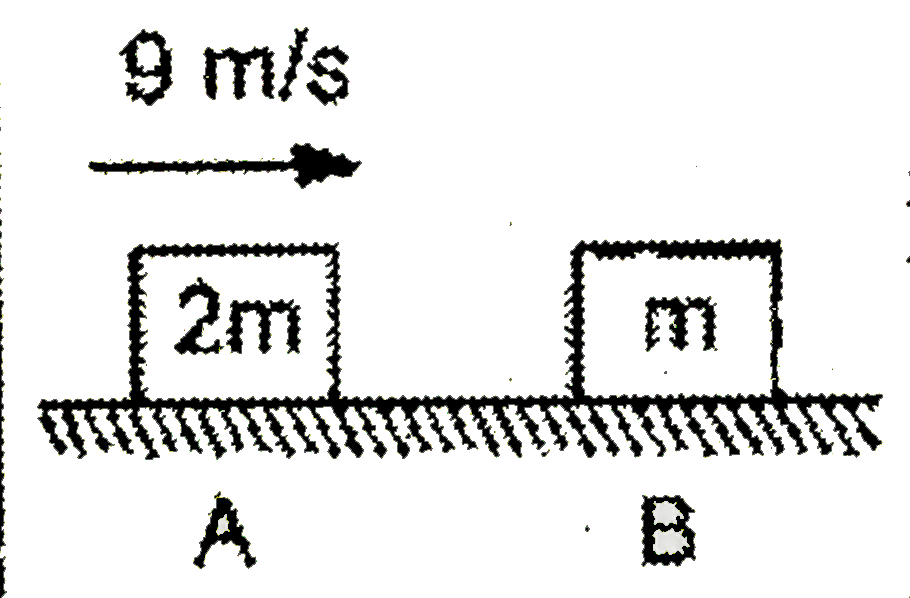
The velocity of the blocks just after the first collision will be:
View SolutionA block of mass 2 m collides,elastically with a masss m kept at rest. Friction exists between the block B ,and surface with coefficient`mu=0.3`, whereas no.friction exists between block A and the surface.
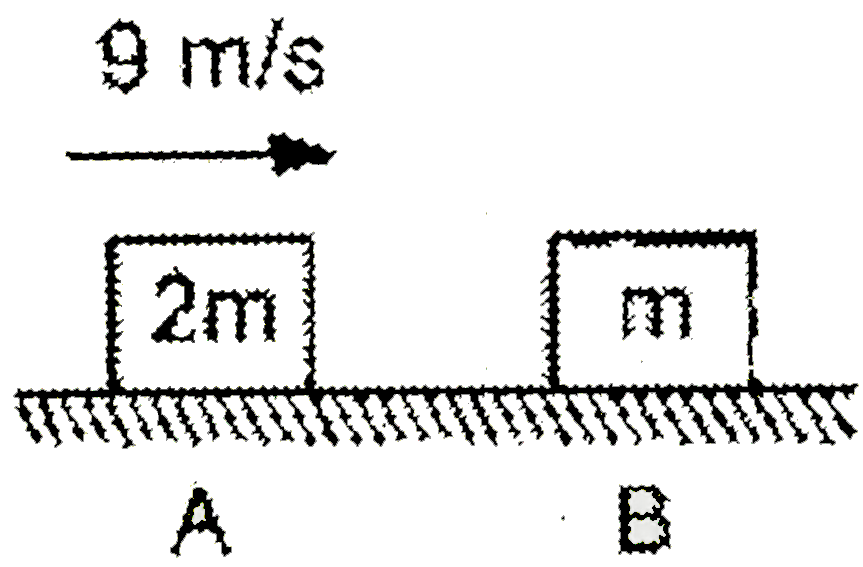
The blocks will again collide after time:
View SolutionA block of mass 2 m collides,elastically with a masss m kept at rest. Friction exists between the block B ,and surface with coefficient`mu=0.3`, whereas no.friction exists between block A and the surface.
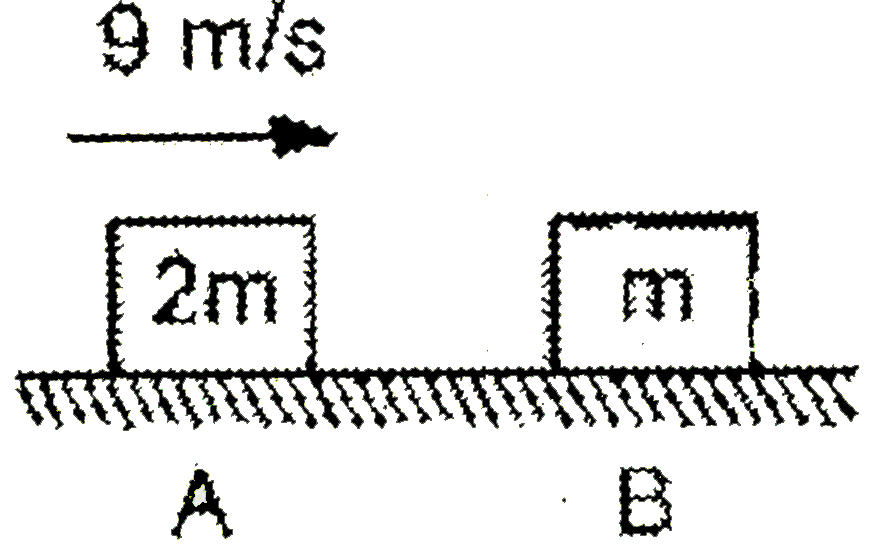
How many collision are possible between the blocks?
View SolutionA block of mass 2 m collides,elastically with a masss m kept at rest. Friction exists between the block B ,and surface with coefficient`mu=0.3`, whereas no.friction exists between block A and the surface.
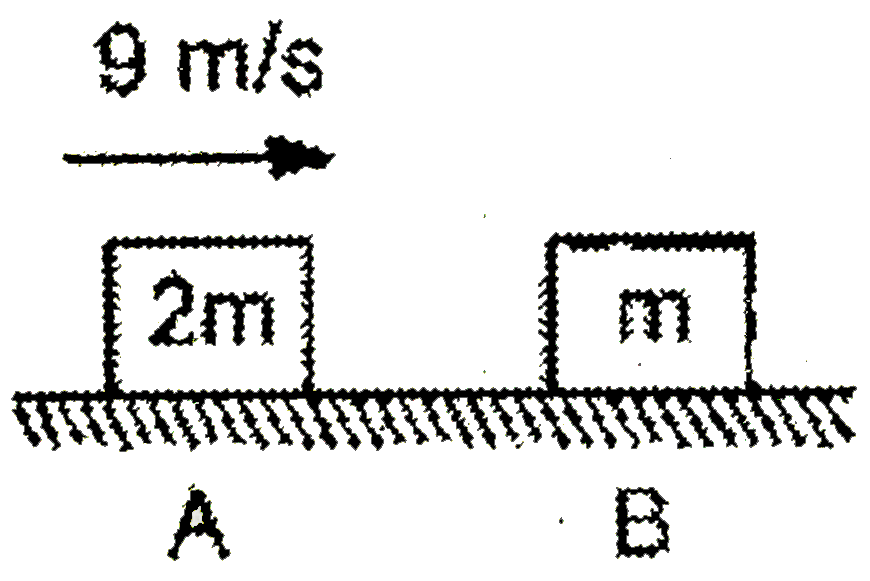
After how much time collision between the blocks will not take place practically:
View SolutionA block of mass 2 m collides,elastically with a masss m kept at rest. Friction exists between the block B ,and surface with coefficient`mu=0.3`, whereas no.friction exists between block A and the surface.
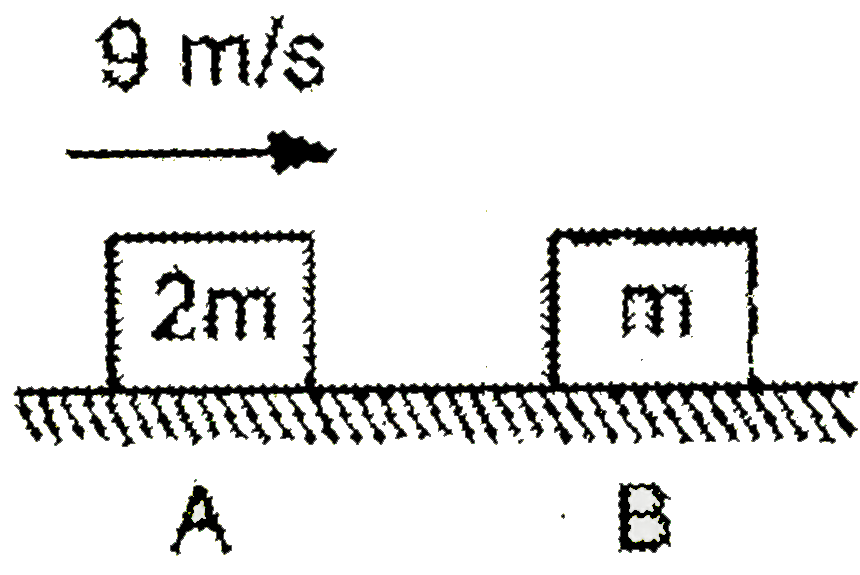
Maximum distance between the blocks during the time interval between first and second collision is:
View SolutionA block of mass 2 m collides,elastically with a masss m kept at rest. Friction exists between the block B ,and surface with coefficient`mu=0.3`, whereas no.friction exists between block A and the surface.
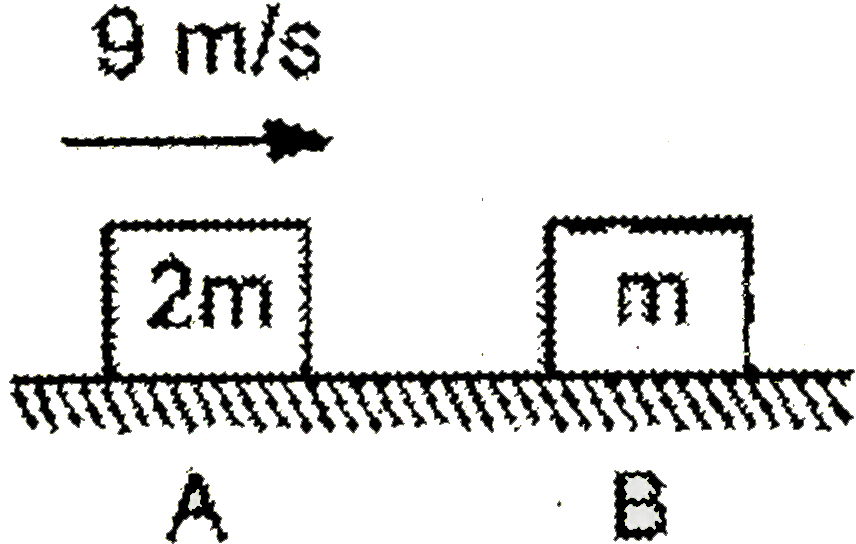
Which of the following graphs best represent the distance between the blocks between first and second collision?
View Solution
P-3 questions and complete solutions for chapter IMPULSE AND MOMENTUM of SHREE BALAJI PHYSICS (HINGLISH) of Class 11